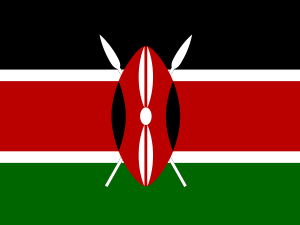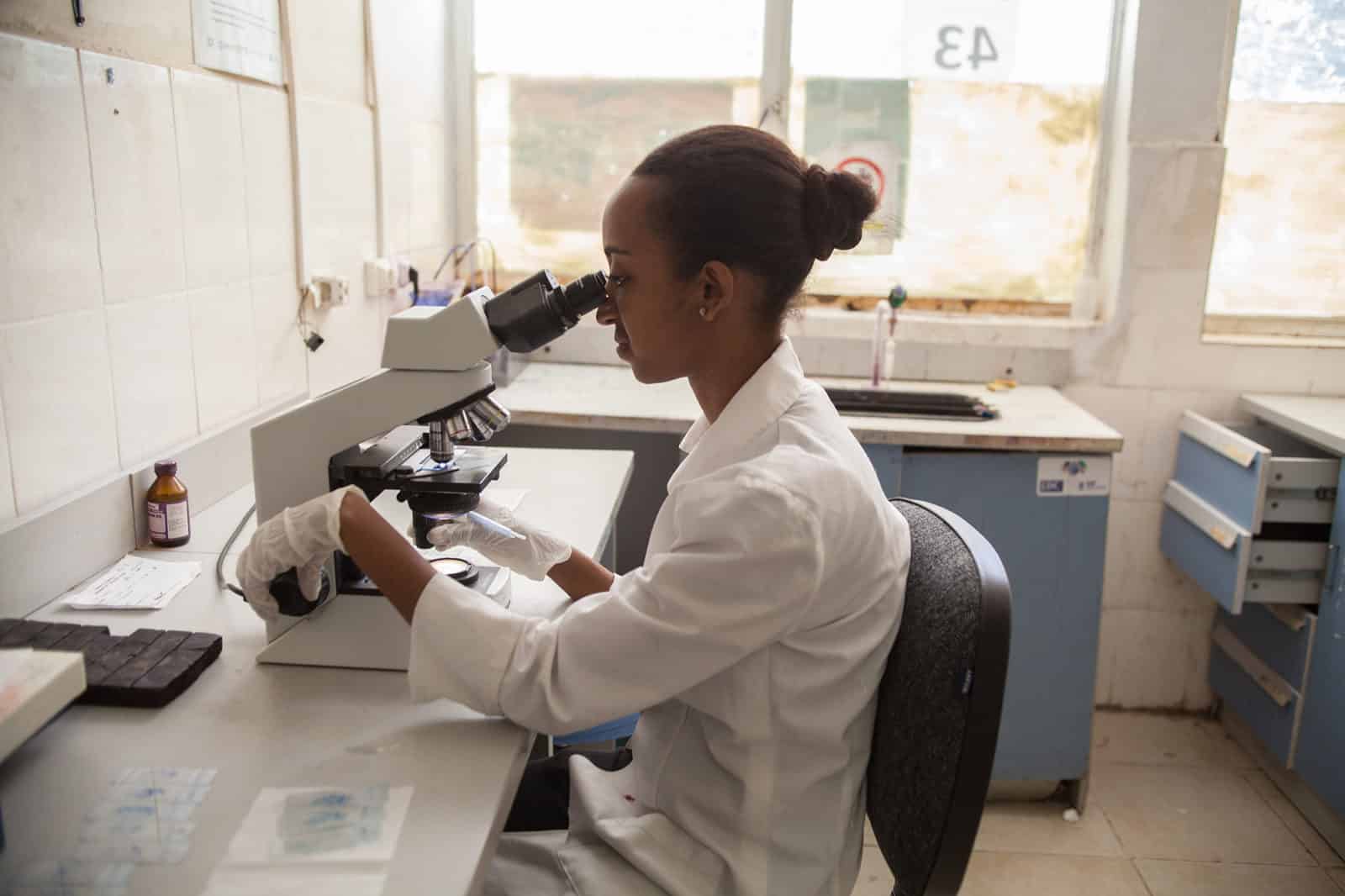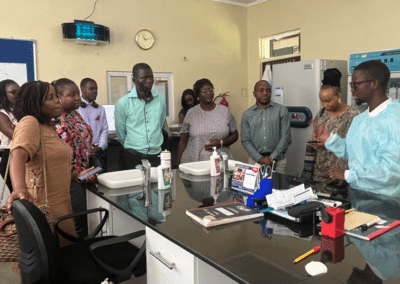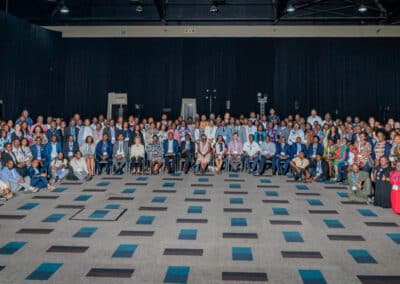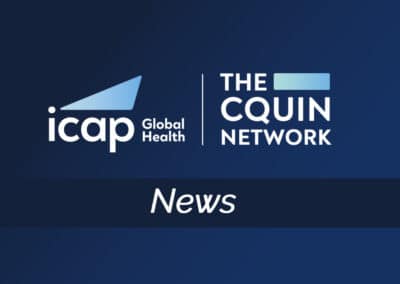In late 2017, the African Society of Laboratory Medicine (ASLM) launched the Laboratory Community of Practice (LabCoP) initiative to support lab systems strengthening in sub-Saharan Africa. LabCoP uses an online learning approach to support knowledge exchange and experience sharing. Its initial focus will be on scaling up HIV viral load monitoring to achieve epidemic control.
At CQUIN’s annual meeting in Maputo, we spoke with Charles Kiyaga, MSc.; Pascale Ondoa, MD, PhD, MSc; and Legese A. Mekuria, PhD, MSc, MPH, about the crucial role that lab services play in bringing differentiated service delivery (DSD) to scale.
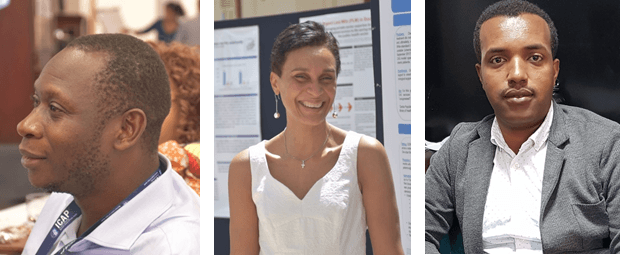
From left: Charles Kiyaga, Pascale Ondoa, and Legese A. Mekuria of ASLM
Tell us about LabCop
CK: With support from the Bill and Melinda Gates Foundation, ASLM is working with ICAP and Project ECHO™ at the University of New Mexico, to provide expertise to support lab work. Differentiated service delivery needs a lab component. Differentiated models of care for stable patients simplify and sustain services for clients in the most convenient, cost-effective way possible for the long-term. The lab component of care is just as important as others, but unfortunately, it’s been lagging behind for some time. It’s important to ensure that DSD lab services move at the same pace as the drugs within the package of care.
PO: Lab professionals view DSD from another perspective. Viral load scale-up has been very successful in some countries, so naturally they have good systems and ideas to share. The point of LabCoP is to link countries so they can learn from one another and solve problems that are common concerning viral load scale-up. We are working together to try to solve the problems of the broader lab systems.
LM: When it comes to health care, three sectors often overlap: clinical consultation, lab investigations, and prescribing of medication. Harmonizing these services leads to comprehensive care for the patient, which is the end goal of DSD. When we look at HIV care, I feel that the lab component is often ignored compared to other services. Our job is to advocate for high-quality lab services.
We should provide different services to people living with HIV based on specific criteria. For example, stable patients may need less frequent monitoring, and patients with co-morbid conditions should not be managed the same as people without co-morbidities.
Can you explain the process of a lab investigation and its role in DSD?
CK: In a way, lab tests are the entry point into DSD. For example, many countries define “stable patients” as those with suppressed viral load. That means that you can’t scale up DSD unless you can also scale up routine viral load monitoring.
Even in the lab, there is DSD. For instance, a clinician can recommend repeat viral load testing after one—or even two years—for a stable patient who is virally suppressed, as opposed to every 3-6 months for a patient with a high viral load. You can provide different packages based on their status. Clinical, laboratory, and pharmacy services should all come together to form a comprehensive, high-quality package of care for the client.
PO: The lab component is critical for DSD. One key to differentiating services and reaching 90-90-90 is proper diagnosis so we can then tailor the “what, when, and where” of HIV service delivery models to different groups of patients. In addition to identifying patients with suppressed—or unsuppressed—viral loads, lab testing is important to identifying opportunistic infections and other complications that help us to determine which models are best for patients.
What other challenges stand in the way of quality care with regard to lab services?
PO: Quality of testing. Each result must be reliable. This requires many resources, because quality must be assured at each step of testing. There are programs that support quality HIV testing and quality in reference labs, but intermediate- and community-level labs don’t receive the same level of support. If any nurse or community health worker can use a newly released test kit, how do you ensure quality? I don’t think we’ve answered that question yet.
We want to see lab services incorporated into all DSD models, and integrated in a cost-effective way.
-Dr. Pascale Ondoa, Director of Science, ASLM
CK: Technology is another challenge. Right now, we cannot provide all of the necessary DSD services at the community level. For instance, you may be able to distribute drugs and adherence support services in the community, but unable to conduct a viral load test. Because of the technological challenges labs face, it is difficult to take a sample, transport it, test it, and then have results communicated in time.
What do you hope the CQUIN network does for lab services?
PO: We want to see lab services incorporated into all DSD models, and integrated in a cost-effective way. We need to be careful not to look too far into the future until the present is sorted. Even the most basic lab services are difficult to achieve in low-resource settings. We must be careful not to overcomplicate our lab services, and divert energy away from simpler approaches, like the public health approach.
CK: It’s all about adopting the concept of integrating lab services within the DSD model. It might not be perfect yet, and there’s room where we can fine-tune it. Lab services are crucial and we cannot leave them behind. As technology improves, so will the models we use to provide services. We want to see integration so it’s part of the entire package. Even the delivery of drugs has gone through a transformation.
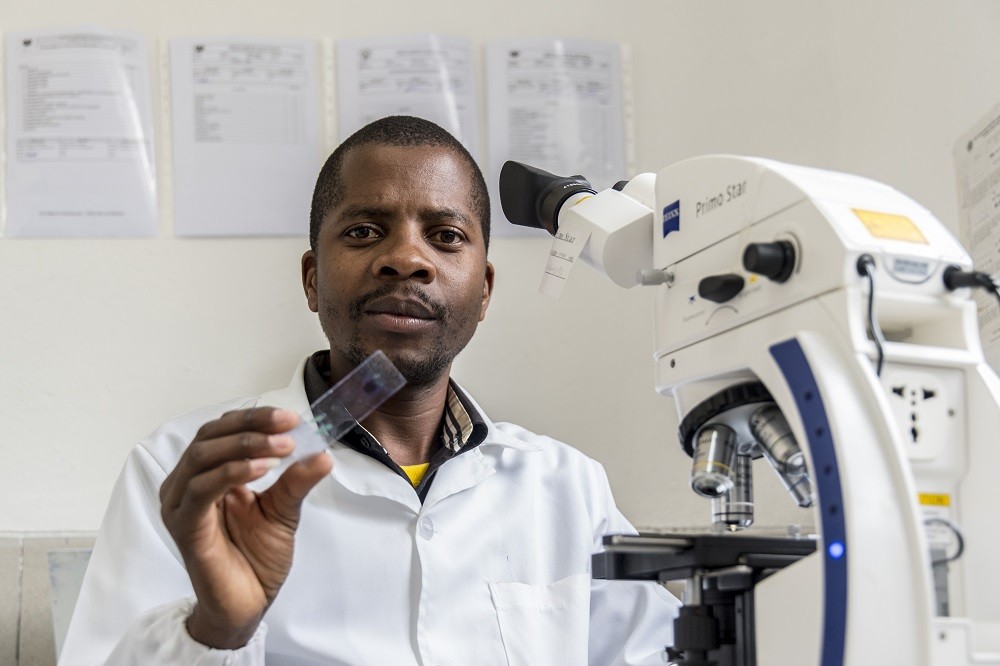
At first, the experts thought that no one should be giving drugs apart from a clinician or doctor. Now nurses, even clients at the community level, can deliver medicine. That revolutionary approach to access can move lab services to that level. I believe the integration will build on the existing framework until we get to a point where lab services are more in line with this model.
PO: We need to piggyback on other initiatives, like universal health coverage. We need to ensure that everybody, everywhere, has access to high-quality care and that goes beyond HIV. Eventually the discussion needs to broaden to all stakeholders and programs. Funding dedicated to HIV is steadily decreasing. It’s hard to make the argument to fund HIV programs with so many competing priorities. Without effective diagnostic and clinical services, the community initiatives will fail, so we need to bridge programs and initiatives.
LM: I see things differently. In my opinion, the DSD model or any other HIV-related service can serve as an example for the management of other diseases—like cardiovascular disease or diabetes —where care is not as standardized as with HIV/AIDS. I hope that CQUIN can address these issues.
ASLM is a pan‐African professional association, created by and endorsed by heads of state at the African Union. ASLM advocates for the critical role of laboratory medicine and networks throughout Africa.
For more information on ASLM and LabCoP, visit www.aslm.org









